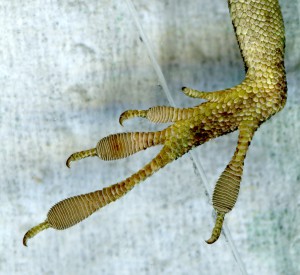Supercomputing the Evolution of a Model Flower
Following is an except from an article that originally appeared on the website of the Texas Advanced Computing Center on January 28, 2015:

Following is an except from an article that originally appeared on the website of the Texas Advanced Computing Center on January 28, 2015:
In the world of living things, surely one of the oddest relationships is the one between certain insects and the bacteria they can't seem to live without. Such bacteria, called obligate symbionts live inside the host's cells. They're distinct organisms -- they have their own DNA separate from that of the host. And yet, if you try to remove the bacteria, the host dies. And vice versa.
Kidnappings. Guerillas. Impenetrable jungle. The Darien Gap is famous for many things. This 60-mile-wide swath of rainforest straddling the Panama-Colombia border has long been the stomping ground of drug traffickers and guerillas, most notably the left-wing FARC, who until 10 years ago were still conducting high-profile kidnappings of foreign travellers seeking to tackle this notoriously dangerous part of the world. Flash forward a decade and scientists working just outside the gap discovered that, while there were still occasional reports of violence, things were now relatively peaceful in the gap.
A University of Texas Marine Science Institute (UTMSI)-led consortium of seven institutions was awarded $9.2 million to continue research on the impact of oil spills and dispersants on the Gulf of Mexico and public health.
Thanks to an invasive lizard from Cuba, scientists have documented green anoles rapidly evolving better gripping feet. Yoel Stuart was lead author on the study appearing in the journal Science. For more, read our press release or check out these reports in the media from Oct. 23-24:
 Scientists working on islands in Florida have documented the rapid evolution of a native lizard species — in as little as 15 years — as a result of pressure from an invading lizard species, introduced from Cuba.
Scientists working on islands in Florida have documented the rapid evolution of a native lizard species — in as little as 15 years — as a result of pressure from an invading lizard species, introduced from Cuba.
With more and more eco-friendly coffee on grocery store shelves in the U.S. and with major outlets like Starbucks and McDonald's getting into the act in recent years, you might think the coffee industry is becoming greener. But think again.
Can we use plants for energy instead of oil? That's the question one group of intrepid students is trying to answer as part of an innovative program that plugs first year students into real-world research projects with top notch faculty and research scientists.
Do you remember in fifth grade science class learning about food webs? Plants absorb energy from the sun, plants are eaten by animals, and smaller animals are eaten by bigger animals. Generally speaking, the flow is from smaller to larger organisms. An analysis by researchers at The University of Texas Marine Science Institute and the Florida Fish and Wildlife Research Institute reveals how the flow of nutrients in the ocean can also go in reverse, from larger animals to smaller ones. This new understanding has implications for conservation and fisheries management.
In findings of relevance to conservationists and the fishing industry, new research links short-term reductions in growth and reproduction of marine animals off the California coast to increasing variability in the strength of coastal upwelling currents — currents that supply nutrients to the region's diverse ecosystem.